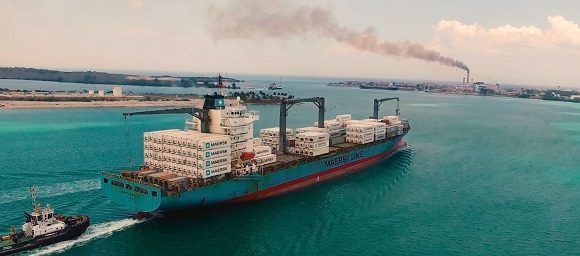The global supply chain is a fragile system of many links that must function properly, but the pandemic has brought industries to a halt or severely reduced both their efficiency and import/export levels and blocked international chains.
Container shipping was particularly affected by port closures induced by virus outbreaks, port congestion and labor shortages, among other difficulties. These bottlenecks in the delivery of goods lead to rising inflation, which in turn gives rise to higher prices for raw materials and components and their ultimate impact on the end consumer.
Now, as a certain economic recovery begins to show thanks to governments’ successful handling of the disease and to the vaccination campaigns, the shipping systems in dozens of countries are finding it hard to meet the growing consumer needs.
The shortage of containers has reached crisis point in China, the world’s No. 1 exporting country, where 35% to 45% of the reserves of goods on the planet are expected to be rejected, which leads to delays for lack of space in the cargo ships.
Throw in another very troublesome problem: ship charter costs have skyrocketed alarmingly. For example, the price of shipping a 40-foot container from China to Europe has increased so much that its effect has been felt in medium-sized enterprises and in more than a few sectors.
According to international experts and entities, freight rates for such means increased dramatically between July 2019 and January 2022. The year 2021 saw a particularly steep increase in September with the record price of more than USD 10,800, and it’s still high, even if it dropped by around a thousand dollars last month.
“We are looking at a very complex situation that will bring about a reduction in imports especially if the U.S. dollar goes skyhigh,” experts have said.
But it’s an ill wind… in the midst of the “container crisis and the interruption of shipments, the big shipping, the ones that lay the rules of the game, are making huge profits.
The impact on the Cuban economy
Alejandro Gil Fernández, Deputy Prime Minister and head of the Ministry of Economy and Planning, told ACN that over 6,000 containers with goods destined for Cuba are stuck in international ports because of problems related to both the shipping companies and the rising freight costs.
A communiqué issued on January 22 about irregularities in Cuba with the availability of powdered milk and coffee, the Food Industry Business Group pointed out that even if the production of this last item has been fulfilled, “the ration system has been forced to rely on imported coffee that has not arrived in the country yet due to difficulties with the shipping companies”.
As if that were not enough, in April 2020, in a setting deeply influenced by the Cuban-American mafia, which advocates the strict application of the Helms-Burton Act, four shipping companies were sued in Miami for using Cuban port facilities nationalized after 1959.
They were Carnival, Royal Caribbean, Norwegian and MSC Cruises, sued by Havana Docks Corporation, which at that time appealed to the 11th Circuit Court of Appeals in Atlanta against a ruling of a judge in Florida.
These are some of the objective facts that the Cuban economy has to cope with on a regular basis and which cannot be ignored, as they are caused by the aforementioned crisis in maritime transportation and the effects of persecutions and financial limitations imposed by the U.S. blockade in the midst of the epidemic.
 Escambray ENGLISH EDITION
Escambray ENGLISH EDITION





Escambray reserves the right to publish comments.